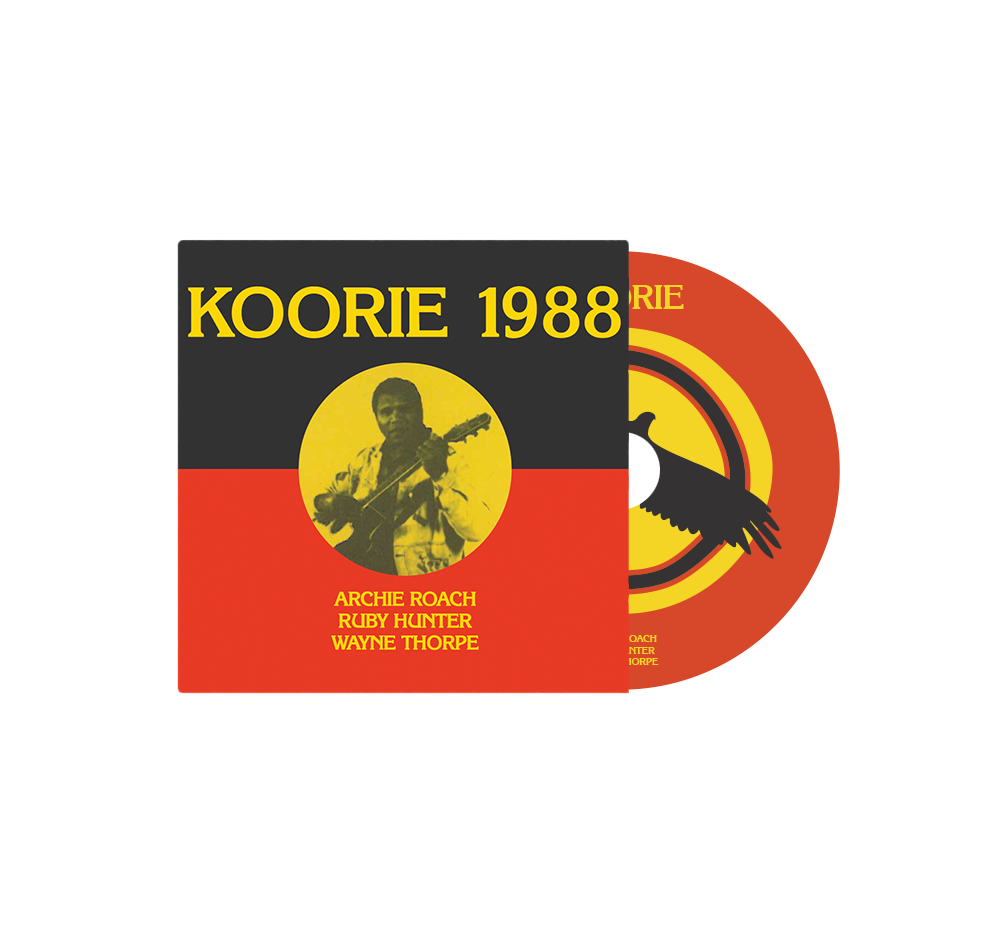Archie Roach Foundation
Archie Roach Foundation - Koorie 1988 CD
Archie Roach Foundation - Koorie 1988 CD
Ally friendly
Couldn't load pickup availability
Koorie.. 1988 A collection of Archie’s earliest protest songs.
This collection of songs on Koorie, like all my songs, were written at a kitchen table leading up to the so called bicentenary of Australia in 1988, celebrating two hundred years of white settlement.
I had been a resident of Galiamble, a rehab facility in St Kilda, trying to quit drinking again, trying to turn my life around. After I got well my late partner, Ruby Hunter, me and our two young children, Amos and Eban moved into a small flat not far from Galiamble where I ended up working for a while. It was right next door to the bottle shop behind the Village Belle Hotel, an irony not lost on me given I was a recovering alcoholic.
With the exception of Took The Children Away, a song I penned after talking with my Uncle Banjo Clarke at Framlingham Aboriginal Mission in southwest Victoria in the late 1980’s, I wrote the other songs protesting the upcoming bicentennial celebrations.
Sitting at that St Kilda kitchen table the songs started pouring out of me; almost a song a day. The inspiration to protest the bicentennial was strong. The history of Aboriginal and Torres Strait Islander people in Australia was around 60,000 years, far longer than the 200 years of white settlement. Over a period of about two weeks I had written nine songs.
Some of these early songs made it onto my first album Charcoal Lane, released in 1990, and some have never been heard beyond this unearthed Koorie tape, some thirty- three years on.
Uncle Jim Berg, who founded the Victorian Aboriginal Cultural Heritage Trust, knew that I was writing songs. He asked me to write one to accompany an exhibition in late 1988 that the Trust was curating to celebrate Victorian Aboriginal life. I called the song, Koorie Koorie. Uncle Jim organized for me to record all ten songs in a Richmond studio with Ruby on vocals and Wayne Thorpe on didjeridoo. Only a couple of hundred copies of Koorie were ever released and only on cassette. I hope you enjoy listening to some of my earliest songs of protest.

